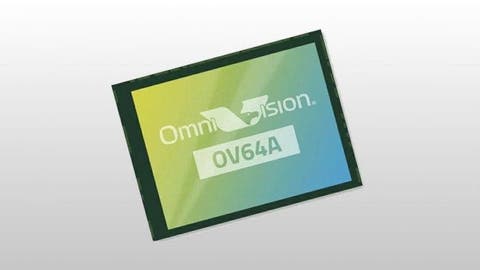The market of smartphone cameras may be flooded with sensors from Samsung and Sony. Currently, those two OEMs are fighting to become the preference of users and smartphone makers. However, there’s a third name in this industry that always traced a quieter path than these two – OmniVision. You may not be familiar with that name, but if you by any chance owned a shady Chinese smartphone, there’s a strong chance that it came with a sensor from Omnivision. Of course, the company isn’t only present in less known devices it supplies camera sensors for known companies like Xiaomi. Today, Omnivision has just launched the Omnivision OV64A sensor which makes the company ready for the 64MP party.
This year, we’re seeing how smartphone makers are moving to bigger and bigger smartphone cameras. According to recent estimates, the shipments of image sensors of 50MP or more will hit 322 million units by 2021. For now, we can say that 64MP is even becoming a standard among mid-range smartphones. Omnivision is moving itself to catch a good slice of this market with the newly released sensor. It’s the world’s first 64MP sensor with 1-micron pixels. Interestingly enough, it comes just a few times after OV64B, another Omnivision sensor with whopping 0.7-micron pixels. According to the company, the new sensor will bring a new level of quality in low-light conditions. It’s a new milestone for the company.
8K recording, fast and reliable auto-focus
The new sensor has an on-chip, 4-cell (4C) shading channel cluster and is made with Omnivsion’s most cutting-edge development technologies. In theory, the new sensor is even capable of recording 8K video recording. The new sensor also comes with enhanced Auto-Focus, and that’s good to hear, especially after Samsung’s fiasco with Galaxy S20 Ultra 108MP camera. Moreover, it has a 1/1.34-inch optical arrangement which is smaller than Sony IMX686 and Samsung ISOCELL Bright GW1. The new sensor uses pixel-binning for 16MP pictures with 4C binning at 60 fps. It can record 8K videos at 30 fps, 4K / 2K videos at 120 fps, 1080p videos at 240fps, and 720p footage at 480 frames per second. Unfortunately, this isn’t a sensor equipped with OIS. It will be up to manufacturers to develop an OIS mechanism while using this sensor. After all, 8K videos without image stabilization should be messy.
According to the company, the first OV64A powered smartphones will hit the shelves sometime in Q4 2020. We expect this sensor to popularize the 64MP resolution.
Follow Gizchina.com on Google News for news and updates in the technology sector.
